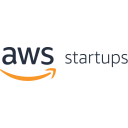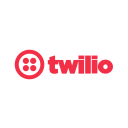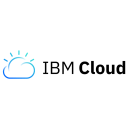Cloudflare vs AWS: Choosing best CDN for your website
- 01Cloudflare vs AWS Activate: overview
- 02What's the difference between Cloudflare and AWS Activate?
- 03Cloudflare pros and cons
- 04AWS Activate pros and cons
- 05Cloudflare compared to AWS Activate
- 06AWS Activate compared to Cloudflare
- 07Features comparison
- 08Cloudflare vs AWS Activate: Which is the best for your business?
- 09Promotions on Security software
- 10Alternatives to Cloudflare & AWS Activate
Access up to $250,000 savings on Cloudflare & $300,000 on AWS Activate
Access up to $250,000 savings on Cloudflare & $300,000 on AWS Activate
Whether you're launching a startup or scaling a global enterprise, ensuring your online assets are fast, secure, and reliable is paramount to success. In the realm of Content Delivery Networks (CDNs) and cloud services, two big players stand out: Cloudflare and AWS (Amazon Web Services).
In this article, we delve into two prominent solutions in the cloud services arena—Cloudflare vs AWS. Both aim to enhance your online presence through improved performance and security measures, yet each caters to distinct needs and offers different features. We'll examine each platform's strengths and weaknesses and the primary distinctions between them to assist you in determining which aligns best with your business objectives.
Cloudflare vs AWS Activate: overview
Cloudflare and AWS are prominent players in the realm of Content Delivery Networks (CDNs) and cloud services, each boasting unique features and advantages tailored to various user needs.
Cloudflare is renowned for its emphasis on security and performance. It offers a robust suite of tools designed to protect and accelerate websites, applications, and APIs. With its integrated global CDN, Cloudflare ensures fast content delivery while safeguarding users from a wide range of threats, making it particularly appealing for businesses that prioritize security alongside speed. On the other hand, AWS, under its Amazon CloudFront service, is valued for its flexibility and vast ecosystem. With a broad range of services that integrate seamlessly with CloudFront, AWS offers a holistic approach to cloud computing and content delivery. This makes it especially suited for businesses seeking an all-inclusive cloud solution that can adapt to diverse and evolving needs.
Now, let's dive deeper into the Cloudflare vs. AWS comparison to guide you in selecting the ideal CDN and cloud service tailored to your unique requirements.
What's the difference between Cloudflare and AWS Activate?


Both AWS CloudFront and CloudFlare will speed up your site. They’re good CDNs, and you won’t regret either choice, especially if you go for the free plan. That being said, we generally recommend CloudFlare to new users.
That’s because CloudFlare is much easier to use. AWS is fine too, but it’s complex. You can tailor its caching behaviours to your site’s size and needs. You can modify access controls, and in general you’ll have to do some work to optimize AWS for your business.
CloudFlare is smoother to setup. For example, you can access all of its DNS options by default. If you picked AWS CloudFront instead, you’d need to integrate with Amazon Route 53 to get the same DNS settings.
It’s also harder to update old sites with CloudFront. HTTP/2 is a new protocol for communication over networks, and both tools have it enabled by default. But CloudFlare makes it much easier to enable it for older sites.
CloudFlare is slightly better for security, too. While AWS CloudFront is secure as well, offering WAF and DDoS protection, CloudFlare’s anti-DDoS suite is more advanced. Plus, its infrastructure is better suited for mitigating cyber threats, while CloudFront is focused on improving speed.
So why would you ever pick AWS CloudFront? For starters, it integrates much more easily with other AWS products. If you’re already using that infrastructure, it can be a great choice. It’s also more customizable, and its adaptive pricing can end up being much cheaper than CloudFlare, especially on low-trafficked websites.

$250,000 in credits for 1 year on Cloudflare
Get $250,000 in credits for 1 year on Cloudflare and up to $250,000 savings with Secret.
Cloudflare pros and cons
What are the advantages of Cloudflare?
- Performance enhancement: Cloudflare's Content Delivery Network (CDN) significantly improves website load times globally.
- Advanced security: Offers robust protection against DDoS attacks, SQL injection, and other web threats.
- Free tier available: Provides a basic level of service for free, which is beneficial for small websites or startups.
- Always online™ Technology: Keeps a cached version of websites available to visitors even if the origin server goes down.
- Easy integration: User-friendly dashboard and setup process, with minimal changes required to start using the service.
What are the disadvantages of Cloudflare?
- Limited customization in free plan: Advanced features often require a paid plan.
- Potential false positives: The security systems can sometimes block legitimate users, thinking they're threats.
- Cache control: Over-reliance on Cloudflare's caching can sometimes lead to outdated content being served.
- Potential for data concentration: Using Cloudflare centralizes a significant portion of web traffic, potentially creating a single point of failure.
- Limited support on free tier: Priority support and faster responses are reserved for paying customers.
Compare Cloudflare to other tools
AWS Activate pros and cons
What are the advantages of AWS Activate?
- Comprehensive service range: Offers a vast array of services from computing, storage, AI, to IoT and beyond.
- Scalability: Easily scales resources based on demand, accommodating both startups and global enterprises.
- Global reach: AWS's extensive global infrastructure ensures reduced latency and better performance with multiple data centers worldwide.
- Security and compliance: Provides advanced security features and complies with numerous international and jurisdiction-specific standards.
- Innovative tools: Constantly releases new services and tools, staying at the forefront of cloud technology.
What are the disadvantages of AWS Activate?
- Complex pricing structure: AWS's myriad of services and pricing options can be confusing, leading to unexpected costs.
- Steep learning curve: The vastness of AWS can be overwhelming for beginners, requiring training and expertise.
- Data transfer costs: While inbound data transfer is free, outbound data transfers can become expensive.
- Potential for vendor lock-in: Transitioning away from AWS after integrating many of its unique services can be challenging.
- Default limits: AWS imposes default soft limits on resources, which can be raised upon request, but can initially hinder some projects.
Compare AWS Activate to other tools
Cloudflare compared to AWS Activate
Cloudflare and AWS are titans in the CDN and cloud services landscape. While Cloudflare stands out for its focus on security and web performance, offering tools that protect and accelerate online assets, AWS, through its Amazon CloudFront service, is celebrated for its comprehensive cloud ecosystem and flexibility.
Both cater to a range of needs, with Cloudflare emphasizing streamlined security and AWS offering a broad suite of integrated services. Choosing between them hinges on specific business priorities, whether that's specialized web protection or an all-encompassing cloud solution.
Is Cloudflare better than AWS Activate?
Whether Cloudflare is better than AWS depends on specific use cases and priorities. Cloudflare excels in security and enhancing web performance, often providing a more straightforward approach to CDN and DDoS protection. AWS, particularly through its Amazon CloudFront service, offers a vast and flexible cloud ecosystem suitable for a wide array of applications.
While Cloudflare might be more user-friendly for businesses focused solely on web security and performance, AWS is often preferred by those needing a holistic cloud infrastructure. The "better" choice hinges on individual needs and the broader context of the user's goals.
What is Cloudflare best used for?
Cloudflare is best utilized for enhancing web performance and security. Its primary function is as a Content Delivery Network (CDN), which means it accelerates website load times by serving content from the nearest global location to the end user.
Additionally, Cloudflare provides robust protection against DDoS attacks, malicious bots, and other web-based threats. Beyond these, it offers services like secure web gateways, firewall rules, and domain management, ensuring that both content creators and their audiences have a seamless, fast, and secure online experience.
Can Cloudflare replace AWS Activate?
Cloudflare and AWS serve different primary functions, making a direct replacement challenging. While Cloudflare shines as a Content Delivery Network (CDN) emphasizing web performance and security, AWS provides a vast ecosystem of cloud services, from hosting to database management.
Although there's overlap, especially in the CDN space with AWS's CloudFront, Cloudflare isn't equipped to replace the comprehensive cloud infrastructure AWS offers. Conversely, AWS alone might not deliver the specialized security features inherent to Cloudflare. Thus, while both are cloud giants, they cater to distinct niches and aren't directly interchangeable in most scenarios.
Is Cloudflare cheaper than AWS Activate?
Cloudflare and AWS have different pricing structures based on their services. Generally, for basic CDN and security services, Cloudflare ‘s pricing often presents a more cost-effective solution, especially with its free tier offering for basic protection and performance enhancements. AWS, with its wide range of cloud infrastructure services, might entail higher costs, especially as usage scales. However, the cost can vary significantly based on specific requirements, configurations, and the exact AWS services used.
While Cloudflare might be more wallet-friendly for straightforward CDN needs, AWS's pricing is contextual to the breadth of services utilized.
Is there a better Security software than Cloudflare?
Whether there's a "better" service than Cloudflare depends on your specific web security and performance needs. Cloudflare stands out with its global CDN network and robust cybersecurity measures.
However, alternatives to Cloudflare like AWS's CloudFront, Akamai, Google Cloud CDN, Microsoft Azure CDN, and Fastly might be more suitable for certain businesses. CloudFront integrates seamlessly with other AWS services, Akamai has a longstanding reputation in content delivery, and Fastly emphasizes real-time content updates and streaming, for example. The choice of the "better" service rests on your unique requirements, budget, and desired features. It's essential to evaluate these factors to determine which platform best matches your web infrastructure objectives.
$250,000 in credits for 1 year on Cloudflare
Get $250,000 in credits for 1 year on Cloudflare and up to $250,000 savings with Secret.
AWS Activate compared to Cloudflare
AWS and Cloudflare are major forces in the digital infrastructure domain, but they cater to diverse niches. AWS offers a broad spectrum of cloud services, from computing and storage to advanced machine learning tools. Cloudflare, on the other hand, is primarily recognized for its CDN services and cybersecurity features, optimizing web performance and safeguarding against threats.
While AWS's CloudFront competes directly with Cloudflare's CDN, AWS's broader infrastructure capabilities contrast with Cloudflare's specialized security focus. Both are powerful in their realms, but the choice between them typically pivots on specific business needs and goals.
Is AWS Activate better than Cloudflare?
Whether AWS is better than Cloudflare hinges on the specific needs of a project or business. AWS, with its extensive array of cloud infrastructure services, caters to a wide range of applications from hosting to database management. Cloudflare, while offering some overlapping services like CDN through AWS's CloudFront, primarily focuses on web performance and security.
AWS might be the go-to for comprehensive cloud solutions, but Cloudflare is often preferred for specialized web security and speed optimization. "Better" is thus a matter of context, with the choice resting on the specific requirements and priorities of the user.
What is AWS Activate best used for?
AWS, or Amazon Web Services, is a comprehensive cloud services platform renowned for its versatility. It's best used for hosting web applications, storing vast amounts of data, and processing complex workloads.
With a rich suite of tools, it caters to various needs, from simple website hosting with EC2 to intricate machine learning tasks with SageMaker. AWS also facilitates database management, analytics, and IoT solutions. Its expansive infrastructure allows businesses of all sizes to scale and innovate, making it a cornerstone for many startups and global enterprises seeking reliable, secure, and flexible cloud computing solutions.
Can AWS Activate replace Cloudflare?
While AWS offers a vast range of cloud services, including its CDN solution, CloudFront, it doesn't strictly replicate all of Cloudflare's specialized features. Cloudflare emphasizes web performance and robust cybersecurity, with tools explicitly designed to combat DDoS attacks, malicious bots, and other web threats. AWS's CloudFront can provide content delivery, but the broader AWS ecosystem doesn't focus solely on the web security nuances inherent to Cloudflare.
Therefore, while AWS might substitute some functionalities, it doesn't entirely replace Cloudflare's specialized offerings. The decision to use one over the other—or even both—depends on specific project needs and priorities.
Is AWS Activate cheaper than Cloudflare?
Comparing AWS and Cloudflare on cost is complex, as they offer varied services. For direct CDN solutions, Cloudflare often provides more cost-effective options, especially with its basic free tier. However, AWS encompasses a wide range of cloud services, and pricing can escalate based on the breadth and volume of services utilized. Specific configurations, data transfer rates, and additional features can influence the cost on both platforms.
While Cloudflare might be more budget-friendly for basic CDN and security needs, AWS's pricing is contingent on the specific services and resources consumed, making direct cost comparisons subtle.
Is there a better Cloud Computing software than AWS Activate?
Deciding whether there's a superior service to AWS relies on your distinct cloud computing requirements and objectives. Various alternatives cater to diverse business needs.
Alternatives to AWS include Google Cloud Platform, Microsoft Azure, Oracle Cloud, and IBM Cloud, with each bringing its unique strengths to the table. For instance, Google Cloud Platform is known for its strong offerings in data analytics and machine learning. The choice of the optimal cloud service largely hinges on your individual circumstances, budget, and feature preferences. Thoroughly evaluating these factors is crucial in selecting the platform that best aligns with your cloud infrastructure goals.
20-50% off your monthly spend and up to $2,000 in credits on AWS Activate
Get 20-50% off your monthly spend and up to $2,000 in credits on AWS Activate and up to $300,000 savings with Secret.
Features comparison
Cloudflare Takes the Lead in User-Friendliness Over AWS
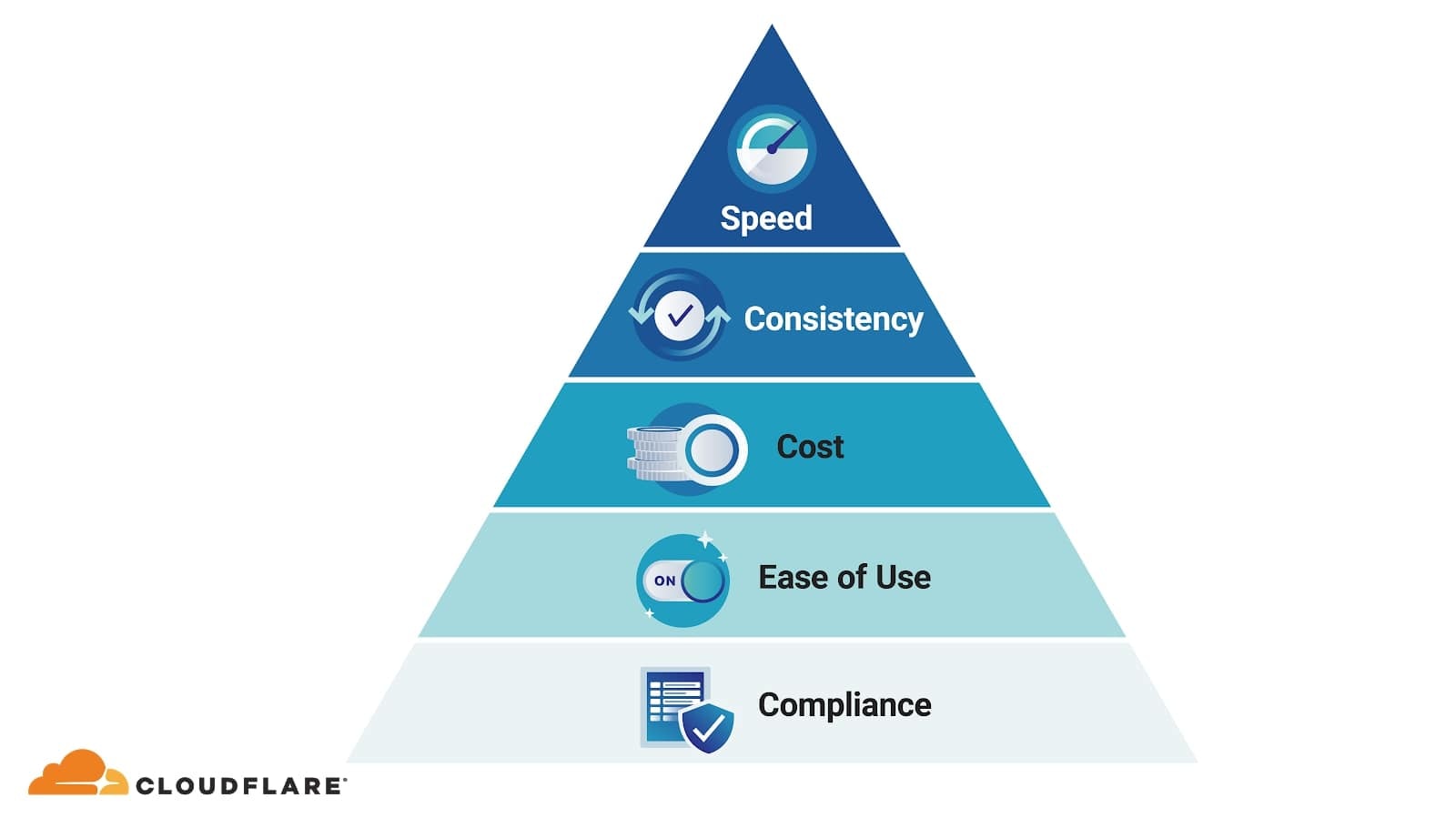
When evaluating cloud services for their user-centric design, Cloudflare consistently emerges as the more user-friendly choice compared to AWS. Cloudflare's design, with its straightforward navigation, clean interface, and intuitive processes, enables users, from novices to experts, to engage effortlessly. A practical example is the speed and simplicity with which users can activate a CDN or adjust DNS settings on Cloudflare.
Conversely, AWS, while undeniably powerful and expansive, presents a challenging landscape for newcomers. Its vast array of services and options, like configuring EC2 instances or setting up an RDS database, necessitate a deeper understanding and can be intimidating. While AWS's complexity offers seasoned professionals nuanced control, Cloudflare's accessibility makes it a preferred choice for those prioritizing ease over extensive customizability.
AWS Outshines Cloudflare in Versatile Integration Capabilities

As for integration possibilities, AWS unquestionably holds a dominant position. As an industry pioneer in the cloud domain, AWS has garnered partnerships and integrations with an expansive range of third-party applications and platforms. For example, businesses can effortlessly connect AWS with popular analytics tools like Tableau or renowned content management systems like WordPress. This extensive integration network empowers organizations to design an interconnected digital infrastructure tailored to their unique needs.
Conversely, Cloudflare, albeit commendable in its own right, doesn't match AWS's integration scope. While Cloudflare synergizes effectively with prevailing web platforms like WordPress or Wix, its repertoire isn't as vast as AWS's. Consequently, for enterprises prioritizing diverse and intricate integration scenarios, AWS undoubtedly emerges as the more advantageous option.
Cloudflare's CDN Elevates Beyond AWS for Optimized Content Delivery

In the digital landscape where swift content delivery is paramount, Cloudflare's globally distributed Content Delivery Network (CDN) truly shines. Dedicated to optimizing web traffic, Cloudflare's network is crafted to turbocharge websites, APIs, and applications. A notable example is its ability to seamlessly stream high-definition videos to users across continents without perceivable lags. By positioning data strategically near end users, Cloudflare guarantees lightning-fast response times and impeccable service quality.
While AWS does offer CloudFront, its content distribution solution, to enhance delivery speeds, Cloudflare's dedicated and intricate CDN architecture is specifically tailored to outstrip conventional performance metrics, thus offering unparalleled enhancements.
AWS Towers Over Cloudflare in Comprehensive Cloud Storage Solutions
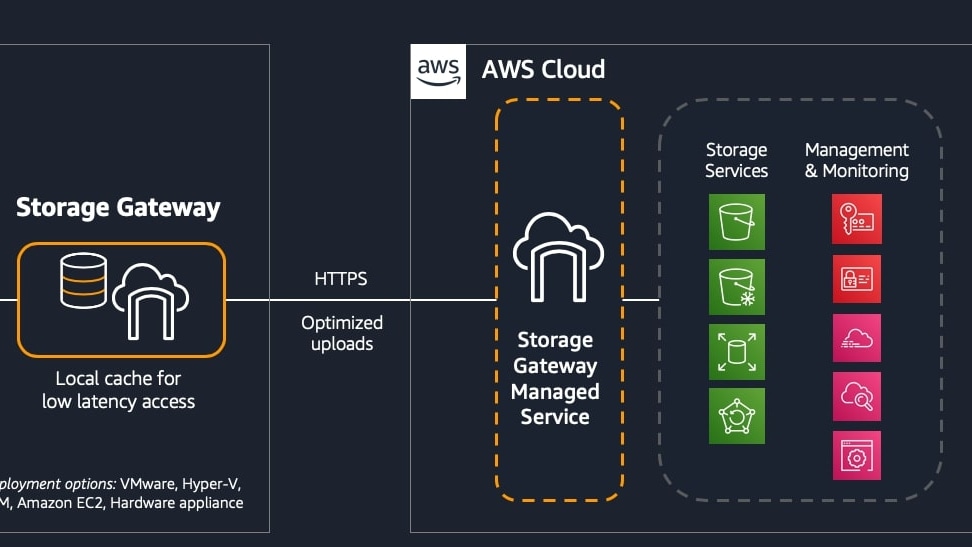
AWS, with its vast aIn the realm of cloud storage, AWS emerges as an undisputed leader, showcasing an impressive portfolio of data management tools and scalable storage solutions. AWS's services, like Amazon S3 for object storage or Amazon Glacier for long-term archival, are testament to its prowess. These platforms are designed to cater to both massive enterprises and budding startups, ensuring data integrity and availability. For instance, a media company can seamlessly store petabytes of video content on S3, retrieving it effortlessly when needed.
Conversely, Cloudflare, while exceptional in content delivery and web security, does not venture into dedicated cloud storage offerings, rendering AWS the more comprehensive choice in this domain.
AWS Surpasses Cloudflare with Advanced Machine Learning Offerings

Navigating the realm of machine learning, AWS showcases unparalleled prowess with its comprehensive suite of tools tailored for AI-driven solutions. Leveraging platforms like Amazon SageMaker, users can effortlessly design, train, and deploy intricate machine learning models, transforming raw data into actionable insights. For instance, financial institutions can utilize AWS's machine learning tools to predict market trends or detect fraudulent activities.
On the other hand, Cloudflare, while proficient in optimizing web performance and security, doesn't venture into the specialized domain of machine learning. Thus, for enterprises or individuals keen on harnessing the power of AI, AWS unquestionably stands out as the preferred choice.
Both Cloudflare and AWS Champion Stellar Security Provisions
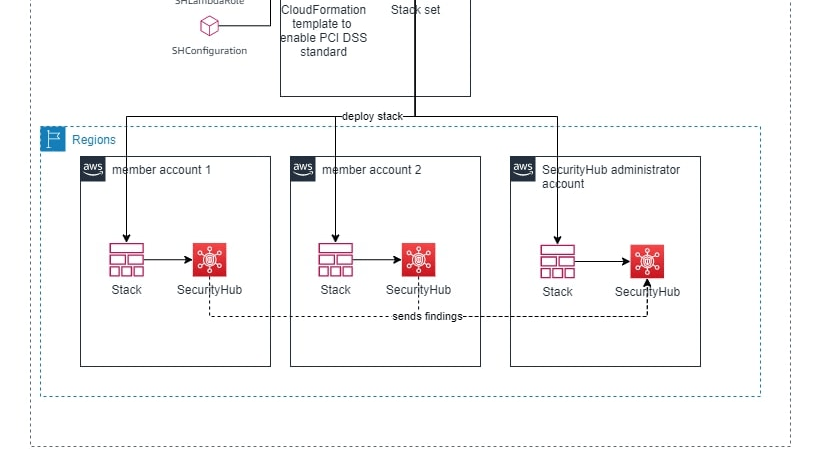
In today's cyber landscape, robust security measures are non-negotiable, and both Cloudflare and AWS rise to the occasion with their state-of-the-art security offerings. Cloudflare excels in defending web assets against pressing cyber threats, like crippling DDoS attacks, by diffusing them before they reach the origin server, and warding off malicious bots using Web Application Firewall (WAF).
On the other hand, AWS, being a holistic cloud service provider, extends its security framework with features such as Identity and Access Management (IAM) for fine-grained user permissions, top-notch encryption mechanisms for data, and security groups to control inbound and outbound traffic, thereby ensuring a fortified environment for digital assets.
Cloudflare Outshines AWS with Precision in Real-Time Analytics

In the dynamic world of web traffic and cybersecurity, Cloudflare emerges as a leader by providing detailed real-time analytics and reporting tools. Businesses, from budding e-commerce sites to sprawling online platforms, can leverage Cloudflare to gain instantaneous insights into website traffic patterns, pinpoint potential security threats, or dissect application user behavior. For instance, a retailer can identify peak shopping hours or regions with high engagement, enabling targeted marketing strategies.
While AWS also offers robust analytics tools, such as Amazon CloudWatch, Cloudflare's razor-sharp emphasis on real-time data interpretation positions it a step ahead, granting businesses timely and actionable intelligence for prompt decision-making.
Subscribe to our newsletters.
No FOMO here. Stay up-to-date on all the latest deals and news with our monthly newsletter straight to your inbox like 125,000+ entrepreneurs (+ Get 10% off on on our Premium Membership!)
Cloudflare vs AWS Activate: Which is the best for your business?
Cloudflare is the best tool for you if:
- You prioritize web security: Cloudflare offers robust DDoS protection, web application firewalls, and encrypted traffic, ensuring your site remains secure from various threats.
- Performance is paramount: Leveraging its global CDN, Cloudflare optimizes website speed by caching content at edge locations, ensuring faster load times for end-users.
- Ease of use matters: With a user-friendly dashboard and intuitive setup processes, Cloudflare caters to both beginners and seasoned professionals, streamlining website management.
- You seek cost-effective solutions: With a free tier available, Cloudflare provides essential services without heavy investment, making it accessible for small businesses and personal websites.
- Uptime is crucial: Cloudflare's Always Online feature ensures that, even if your origin server goes down, a cached version of your site remains accessible to visitors.
AWS Activate is the best tool for you if:
- Comprehensive cloud solutions are essential: AWS offers a vast array of services, from computing to storage, catering to diverse cloud-based project needs.
- Scalability is a priority: AWS's infrastructure supports seamless scaling, allowing applications to grow effortlessly with increasing traffic or computational demands.
- Integration possibilities matter: With numerous tools and services, AWS allows for intricate integrations, ensuring optimal and customized solutions for varied business requirements.
- Advanced analytics and machine learning are key: AWS provides sophisticated tools like SageMaker and Redshift, enabling in-depth data analysis and AI/ML model deployment.
- Global reach is crucial: With data centers spread worldwide, AWS ensures low latency, data sovereignty, and localized content delivery, maximizing user experience across regions.

$250,000 in credits for 1 year on Cloudflare
Get $250,000 in credits for 1 year on Cloudflare and up to $250,000 savings with Secret.
Alternatives to Cloudflare & AWS Activate
Promotions on Security software
Start saving on the best SaaS with Secret.
Secret has already helped tens of thousands of startups save millions on the best SaaS like Cloudflare, AWS Activate & many more. Join Secret now to buy software the smart way.


